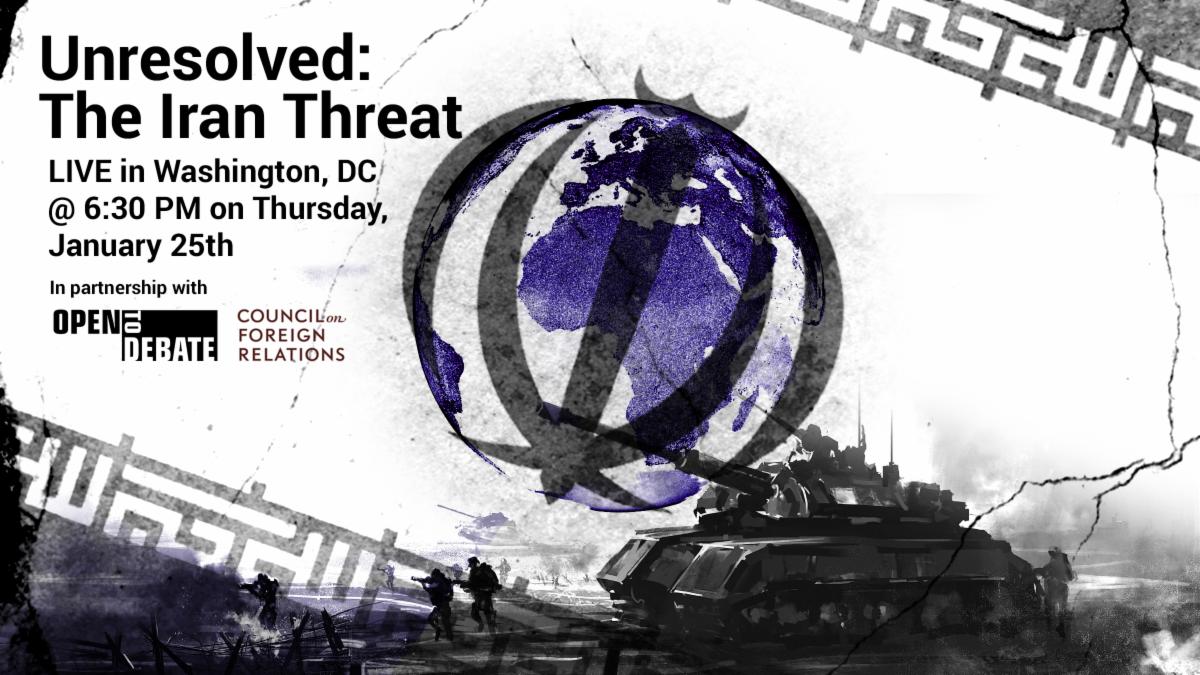|
DEBATER BIOS
* Michael Doran: Senior Fellow and Director of the Center for Peace and Security in the Middle East at the Hudson Institute
Michael Doran is a senior fellow at the Hudson Institute in Washington, D.C., where he specializes in Middle East security issues and co-hosts the foreign policy-focused “Counterbalance” podcast. Doran previously served as a senior fellow at the Brookings Institution and was a senior director on the National Security Council where he was responsible for helping to devise and coordinate U.S. strategy on a variety of Middle East issues, including Arab-Israeli relations and U.S. efforts to contain Iran and Syria. He also served as a senior advisor in the State Department and was a deputy assistant secretary of defense in the Pentagon. Doran has testified before Congress, written two books, “Ike’s Gamble: America’s Rise to Dominance in the Middle East” and “Pan-Arabism Before Nasser: Egyptian Power Politics And The Palestine Question”, and published articles in Foreign Affairs, the American Interest, Commentary, Mosaic, the Wall Street Journal, The Washington Post, and The New York Times.
* Barbara Slavin: Distinguished Fellow at the Stimson Center
Barbara Slavin is a distinguished fellow at the Stimson Center, where she is an expert on the Middle East & North Africa. She is also a lecturer in international affairs at George Washington University. Before joining the Stimson Center, she was director of the Future of Iran Initiative and a nonresident senior fellow at the Atlantic Council. She is the author of “Bitter Friends, Bosom Enemies: Iran, the U.S., and the Twisted Path to Confrontation.” She is a regular commentator on U.S. foreign policy and Iran on NPR, PBS, and C-SPAN. Previously, Slavin served as a public policy scholar at the Woodrow Wilson International Center for Scholars. Slavin is a former career journalist and previously wrote as a columnist for Al-Monitor.com, the assistant managing editor for world and national security at The Washington Times, a senior diplomatic reporter for USA Today, the Cairo and Beijing correspondent for The Economist, and an editor at The New York Times Week in Review.
* Ray Takeyh: Senior Fellow for Middle East Studies at the Council on Foreign Relations
Ray Takeyh is the Hasib J. Sabbagh senior fellow for Middle East studies at the Council on Foreign Relations (CFR). His area of specialization are Iran, U.S. foreign policy, and modern Middle East. Takeyh is, most recently, the author of “The Last Shah: America, Iran and the Fall of the Pahlavi Dynasty” and three other books, “Guardians of the Revolution: Iran and the World in the Age of the Ayatollahs,” “Hidden Iran: Paradox and Power in the Islamic Republic,” and “The Origins of the Eisenhower Doctrine: The US, Britain and Nasser’s Egypt, 1952-1957.” He is the co-author of “The Pragmatic Superpower: Winning the Cold War in the Middle East” and “Revolution & Aftermath: Forging a New Strategy toward Iran.” He has written more than three hundred articles and opinion pieces for various news outlets including the Wall Street Journal, New York Times, and Foreign Affairs. Takeyh has testified more than twenty times in various congressional committees. Before joining CFR, he served as a senior advisor on Iran at the State Department, a fellow at Yale University, the Washington Institute of Near East Policy, and the Middle East Center at the University of California, Berkeley. He is on the editorial board of Survival: Global Politics and Strategy and Orbis: Journal of World Affairs. Takeyh has a doctorate in modern history from the University of Oxford.
|

